Written by Brazilian playwright and TV scriptwriter, Bosco Brasil, in the days after the Twin Towers attack in New York, the play ‘Nuevas Directrices en Tiempos de Paz’ is a solid text that shows the contrast between two cultures in the context of the end of the Second World War. In the local version, produced by the ‘Buvas’ company, the story takes us back to the arriving in Chile of Clausewitz (Carlos Valenzuela), a Polish immigrant, once an actor, who seeks to obtain a visa to build a new life away from the horrors of war. However, in a custom of the port he meets Segismundo (Mario Bustos), a migration official who has been instructed to control the access of people inclined to the fallen Nazi regime. Clausewitz, employing his histrionic talents, will try to convince him, at times with a certain amount of naivety, of the fact that he was not a supporter of Hitler and that he is only looking for a place to build his future.
The play was premiered in Brazil in 2001, under the direction of Ariela Goldmann and 8 years later the script was used as the basis for the film ‘Tiempos de Paz’, directed by Daniel Filho. Reviews in that country praised the flawless performance of Tony Ramos in the role of Sigismundo, who throughout the film has a verbal fight such as the play with the dreamer Clausewitz, performed by Dan Stulbach. However, the film's footage allowed the development of other aspects of the story, as Segismundo's participation as a political police officer in the government under the dictator Getulio Vargas. It is notable the characterization of Ramos as a former torturer turned into a Migration employee at the Rio de Janeiro Custom, where he interrogates every foreigner who comes fleeing from the end of the Second War.
The production of the Buvas company, which will be on stage at the ‘Ladrón de Bicicletas’ hall until September 30, clearly privileges the lineal progression of the dramatic text and the direction, defined by the Valenzuela-Bustos duo themselves, it is extremely neat and correct within the limits of the realistic style. It is a simple and concrete performance, which places us in the coldness of an office in the 40's and where at times, between each line of conversation, an emptiness emerges from the devastation of both characters. Their hardships, deaths and guilt flood the atmosphere of the play, which is gradually installed as a great general scene, in which the few movements of Clausewitz and Segismundo remind us that we are in front of two human beings who seem to be appearing the actions that torment them and that they cannot avoid anymore.

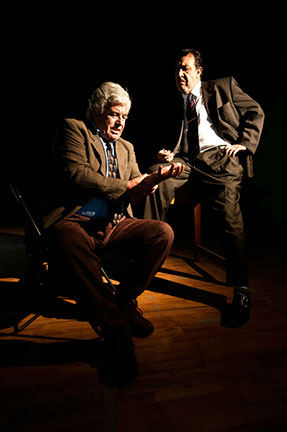
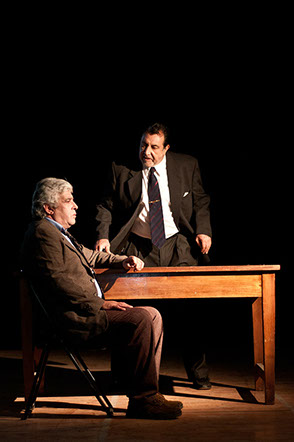
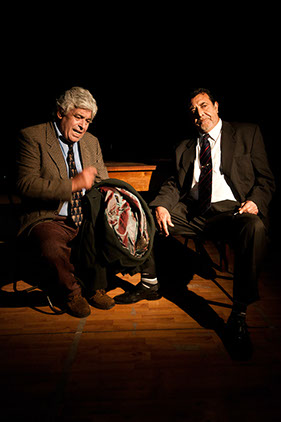

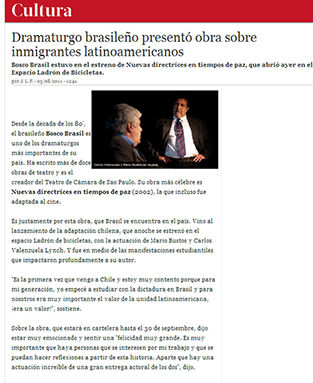
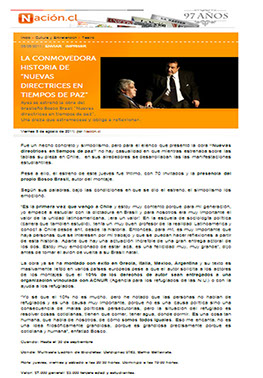
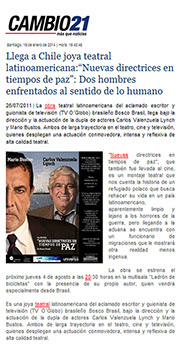


x